Exploring the highest-paying nursing careers in the United States reveals exceptional earning potential, advanced clinical opportunities, and robust job growth for those with specialized skills. From frontline practitioners to executive leaders, top-earning nursing roles come with greater responsibilities and often require further education or certification.
In this listicle, we first outline the baseline for a Registered Nurse (RN)’s salary to set the stage. We then delve into 21 high-paying nursing careers – including advanced practice roles (APRNs), specialized RNs, leadership positions, and niche fields – highlighting what each role entails and how much you can earn.
Average Registered Nurse (RN) Salary
The most recent national average nurse salary stands around $98,430 per year, underscoring how nurses who pursue higher qualifications and specializations can command significantly higher salaries. RN salaries typically range from about $66,000 for entry-level positions (10th percentile) up to over $135,000 for the top 10% of earners (often in high-cost areas or with substantial experience).
| Metric | Value |
|---|---|
| Median Annual RN Salary | $93,600 (May 2024) |
| Salary Range (10th–90th) | $66,030 – $135,320 |
| Job Growth (2023–2033) | 6% (Faster than average) |
This broad range reflects differences in geography, experience, and specialization. The nursing profession continues to grow – RN employment is projected to increase by ~6% from 2023 to 2033 (BLS 2024), which is faster than the average for all occupations. This steady growth, combined with opportunities for overtime and shift differentials, makes registered nursing a stable baseline career with considerable room for financial advancement.
1. Certified Registered Nurse Anesthetist (CRNA) — $212,000
CRNAs are advanced practice nurses who administer anesthesia for surgeries and other procedures, working closely with anesthesiologists and surgeons. They manage patients’ pain and vital signs before, during, and after anesthesia. This role demands extensive education (often a doctoral-level nursing degree) and certification.
| Annual Salary Range | Years of Study | Career Outlook (%) |
|---|---|---|
| $185k–$220k+ | 7–8 years | 38% |
CRNAs top the pay scale for nurses with a median salary around $212,650 nationally. Salaries typically range from about $185,000 up to $220,000+ for experienced CRNAs in high-paying states. The career outlook is excellent – nurse anesthetist jobs are projected to grow by ~38% this decade, reflecting high demand for their specialized skills. CRNAs work in operating rooms, surgical centers, and hospitals, often practicing with a high degree of autonomy in rural areas. If you’re interested in become a CRNA, read our How to Become a Certified Registered Nurse Anesthetist Guide here.
2. General Nurse Practitioner (NP) — $129,000
General Nurse Practitioners are APRNs who provide primary and specialty care across the lifespan. They can diagnose illnesses, prescribe medications, and manage treatment plans much like physicians, often serving as primary care providers. Becoming an NP requires a Master’s or Doctorate in Nursing (2–4 years beyond the BSN) plus national certification.
| Annual Salary Range | Years of Study | Career Outlook (%) |
|---|---|---|
| $98k–$170k | 6–8 years | 45% |
NPs earn a median annual salary around $129,210, with salaries typically ranging from roughly $98,000 up to $170,000 depending on experience and location. Nurse practitioners are in extremely high demand – the role is projected to grow ~45% by 2033 (one of the fastest-growing occupations). NPs work in diverse settings including clinics, hospitals, and private practices, often focusing on family practice, internal medicine, or pediatrics.
3. Psychiatric Mental Health Nurse Practitioner (PMHNP) — $134,000
Psychiatric NPs (PMHNPs) are nurse practitioners specializing in mental health care. They assess, diagnose, and treat psychiatric disorders in patients, often providing therapy and prescribing psychiatric medications. PMHNPs typically complete a Master’s or Doctorate with a psychiatric specialty (after becoming an RN) and obtain board certification in mental health nursing.
| Annual Salary Range | Years of Study | Career Outlook (%) |
|---|---|---|
| $100k–$150k | 6–8 years | 45% |
They command high salaries, with national averages around $134,000 per year. Pay ranges can start near $100,000 for entry-level positions and rise to $150,000+ for those with extensive experience or working in high-cost urban areas. The need for mental health providers is rising, and job growth for NPs (including psych NPs) is ~45% this decade. Psychiatric NPs work in settings like psychiatric hospitals, mental health clinics, private practices, and telehealth, often collaborating with psychiatrists or working independently where allowed.
4. Aesthetic Nurse Practitioner — $139,000
Aesthetic NPs (also known as cosmetic or plastic surgery NPs) specialize in cosmetic medical procedures to enhance patients’ appearance. They perform treatments like Botox/filler injections, laser therapies, and assist in cosmetic surgeries under a physician’s supervision. This role requires NP training (usually a Master’s degree) plus specialized certification or training in dermatology or aesthetic procedures.
| Annual Salary Range | Years of Study | Career Outlook (%) |
|---|---|---|
| $100k–$180k (est.) | 6–7 years | 6–8% (est.) |
Aesthetic NPs earn about $139,000 on average in the U.S., with experienced practitioners in upscale markets earning well over $150,000 including bonuses. The salary range generally spans from around $100k up to $180k, reflecting the high demand and profit margins in the cosmetic industry. Job growth is strong as elective cosmetic procedures grow in popularity. Aesthetic NPs often work in medical spas, dermatology clinics, or plastic surgery centers, blending nursing expertise with an eye for beauty.
5. Certified Nurse Midwife (CNM) — $129,000
Certified Nurse Midwives are APRNs who provide maternity and women’s health services, including prenatal care, delivering babies, and postpartum care. CNMs also offer gynecological exams, family planning, and menopausal care, often serving as primary healthcare providers for women. This role requires a Master’s in Nurse Midwifery (or Doctorate) and national midwifery certification.
| Annual Salary Range | Years of Study | Career Outlook (%) |
|---|---|---|
| $80k–$180k | 6–8 years | 40% (APRNs overall) |
CNMs earn a median salary around $128,000–$130,000 per year. Salaries range widely (approximately $78,000 in lower-paying regions up to $180,000 in top-paying states). The profession is growing fast – midwives are part of the APRN group projected to grow ~40% by 2033. CNMs work in hospitals, birth centers, OB/GYN practices, and community clinics, often in collaborative practice with obstetricians but also independently in many states.
6. Clinical Nurse Specialist (CNS) — $120,000
Clinical Nurse Specialists are advanced practice nurses who serve as clinical experts and leaders in a specialized area of nursing (e.g. critical care, oncology, pediatrics). They provide direct patient care in complex cases, consult with other nurses and healthcare staff to improve care quality, and often lead educational or quality improvement initiatives. CNSs must earn a Master’s or Doctoral degree in a specialty and obtain CNS certification.
| Annual Salary Range | Years of Study | Career Outlook (%) |
|---|---|---|
| $85k–$150k (est.) | 6–8 years | 40% (APRNs overall) |
While the BLS groups their salaries with other APRNs, data indicate CNSs earn around $113,000–$125,000 per year on average. Typical salary ranges might span from roughly $85k up to $150k, depending on the specialty and setting. The role is expected to grow (APRNs ~40% growth) as healthcare systems seek expert nurses to improve patient outcomes. CNSs commonly work in hospitals, academic medical centers, and healthcare systems – often stepping into roles as unit educators, policy developers, or consultants to nursing teams.
7. Nurse Manager & Nurse Administrator — $123,000
Nurse Administrators (including Nurse Managers and Chief Nursing Officers) are nursing leaders who oversee nursing staff and operations of healthcare units or organizations. They handle budgeting, staffing, policy development, and quality assurance to ensure efficient patient care delivery. Climbing to these roles usually requires a BSN and considerable experience; many also hold an MSN in administration or an MBA.
| Annual Salary Range | Years of Study | Career Outlook (%) |
|---|---|---|
| $64k–$200k+ | 4–6 years (BSN+MSN/MBA) | 29% |
According to salary surveys, nurse managers and administrators earn about $120,000–$130,000 annually on average. National data (BLS) show medical and health services managers (a category which includes nurse administrators) have median salaries around $118k, with a range from roughly $64k up to $200k+ in large facilities. Job growth is strong at about 28–29% for these roles (2023–2033), reflecting a need for skilled leadership in healthcare. Nurse administrators work in hospitals, clinics, long-term care facilities, and public health organizations, impacting healthcare delivery at the systems level.
8. Neonatal Intensive Care Unit (NICU) Nurse — $130,000
NICU Nurses are registered nurses who specialize in caring for critically ill newborns in the neonatal intensive care unit. They monitor premature and sick infants, operate high-tech neonatal equipment (ventilators, incubators), administer treatments, and support anxious families. NICU nurses typically need a BSN and neonatal resuscitation certification; many have NICU-specific training.
| Annual Salary Range | Years of Study | Career Outlook (%) |
|---|---|---|
| $80k–$140k | 4–5 years | 6% (RN overall) |
This specialization offers high earning potential: in some regions the average salary is around $127,000, especially for experienced NICU nurses or those traveling to high-demand hospitals. Generally, NICU RN salaries range from about $80k up to $140k or more, influenced by location and overtime shifts. Demand remains steady as advances in neonatal care increase survival rates – neonatal nursing positions will grow along with overall RN employment (6% growth). NICU nurses work in hospital intensive care nurseries and children’s hospitals, providing life-saving care to the tiniest patients.
9. Intensive Care Unit (ICU) Nurse — $118,000
ICU Nurses are RNs who care for critically ill adults in intensive care settings. They manage patients on life support, administer potent IV medications, and respond to rapid changes in patient conditions. ICU nurses require strong assessment skills and often pursue critical care certification (CCRN).
| Annual Salary Range | Years of Study | Career Outlook (%) |
|---|---|---|
| $75k–$130k (est.) | 4 years | 6% (RN overall) |
Base salaries for ICU nurses average about $118,000 per year in some national estimates, especially when factoring in night shift differentials and overtime. Typical ranges vary widely (roughly $75k to $130k), as ICU nurses in high-cost urban hospitals or travel nurse roles can earn top dollar. With an aging population, ICU nurse demand is healthy (critical care is a key area of the 6% RN job growth). ICU nurses work in hospital intensive care units (medical, surgical, cardiac ICU, etc.), often in 12-hour shifts, providing one-on-one care to the most fragile patients.
10. Travel Nurse — $110,000
Travel Nurses are experienced RNs who take short-term assignments in hospitals or clinics across various states (typically 8–13 weeks per assignment). They fill temporary staffing needs in high-demand areas like ICU, ER, or labor & delivery, often receiving premium pay rates, housing stipends, and bonuses.
| Annual Salary Range | Years of Study | Career Outlook (%) |
|---|---|---|
| $80k–$130k (varies) | 4 years | High demand (varies) |
As a result, travel nurses can earn significantly more than staff nurses — averaging around $110k–$115k per year based on national data (actual earnings vary by specialty and how many contracts they take). The pay range can start around $80,000 and climb above $130,000 for full-year travel in high-need specialties or crisis contracts. While not a distinct specialty, travel nursing is popular for its flexibility and pay; demand surged in recent years and remains high. Travel RNs must adapt quickly to new settings and typically need 1–2 years of acute care experience. They enjoy the adventure of working in different hospitals nationwide, from urban trauma centers to rural community hospitals.
11. Pain Management Nurse — $122,000
Pain Management Nurses are RNs who specialize in pain control and palliative care. They assess patients’ pain levels, administer pain medications (including advanced techniques like PCA pumps or epidurals), and coordinate multidisciplinary pain management plans (physical therapy, nerve blocks, etc.). Often working with post-surgical patients or those with chronic pain conditions, they play a key role in improving quality of life. Pain management nurses usually have a BSN and may obtain certification in pain management nursing.
| Annual Salary Range | Years of Study | Career Outlook (%) |
|---|---|---|
| $80k–$130k | 4 years | 6% (RN overall) |
The role’s complexity and demand yield high salaries – around $120k–$125k per year on average. Reported salary ranges go from about $80k for some positions to $130k+ for highly experienced nurses in specialty clinics. As the healthcare system emphasizes pain management and opioid safety, these nurses remain in demand (closely aligning with general RN growth). They work in hospitals (acute pain teams), dedicated pain clinics, hospice and palliative care settings, helping patients find relief from pain.
12. Nursing Informatics Specialist — $95,000
Nursing Informatics Specialists (Informatics Nurses) merge clinical nursing with information technology, optimizing healthcare data systems and electronic health records (EHR) to improve patient care. They may train clinicians on new software, analyze clinical data for quality improvement, and liaise between clinical staff and IT departments. Many have a BSN plus a master’s in informatics or related field, and certification in Nursing Informatics.
| Annual Salary Range | Years of Study | Career Outlook |
|---|---|---|
| $72k–$118k | 4–6 years (BSN+MS) | informatics demand growing |
This tech-focused role is well-compensated, with a median salary around $93,000–$95,000 annually. Salaries range approximately from $72,000 for newcomers up to $117,000 for highly experienced informatics nurses in large health systems. Given the ongoing expansion of health IT, about 42% of informatics nurses with 16+ years experience earn over $150k (reflecting how lucrative the top end can be). Career growth is steady as healthcare continues adopting advanced EHRs and data analytics. Informatics specialists work in hospitals, healthcare software companies, and consulting roles – often in office settings – translating clinical needs into technological solutions. Learn more about Nursing Informatics in our career guide here.
13. Flight Nurse — $95,000
Flight Nurses are critical care RNs who provide in-flight medical care to patients being transported via helicopter or airplane. They handle emergencies in the air, similar to ER/ICU work but in a confined space – managing trauma, stabilizing vital signs, and prepping patients for transfer to a hospital. Flight nurses need robust critical care experience (often ER or ICU background) and additional training in flight physiology and transport protocols.
| Annual Salary Range | Years of Study | Career Outlook |
|---|---|---|
| $75k–$110k (est.) | 4–5 years | 6% (RN overall) |
The role’s intensity comes with solid pay: the average flight nurse salary is about $95,000 per year. Salary ranges typically run from around $75k up to $110k, varying by region and employer (e.g., EMS services, military, or hospital-based flight programs). Growth for this niche parallels overall critical care nursing demand (around 6% RN growth), with positions available through air ambulance services across the country. Flight nurses work for medevac units such as hospital flight programs or independent air ambulance companies, often as part of a helicopter crew with pilots and paramedics, delivering lifesaving care in transit.
14. Research Nurse (Nurse Researcher) — $97,000
Research Nurses coordinate and conduct clinical research and trials, working with principal investigators to ensure studies run smoothly. They may recruit and consent patients for studies, administer experimental treatments, monitor patient outcomes, and collect data—all while adhering to research protocols and ethics. This role often requires at least a BSN, and many research nurses hold an MSN or PhD, especially if they design and lead studies.
| Annual Salary Range | Years of Study | Career Outlook |
|---|---|---|
| $70k–$120k | 4–6 years (BSN+MS/PhD) | Growing with research |
Research nurses earn competitive salaries, averaging around $95k–$100k nationally. Indeed reports a median salary of about $97,000 per year for research nurses. Salaries can range from roughly $70k for some research coordinators to $120k+ for highly experienced nurse scientists or those in pharmaceutical research. Job growth is favorable as medical research expands (e.g., new drug trials, public health studies), and many positions are available at universities, hospitals, and biotech companies. Nurse researchers typically work in research centers or academic institutions, bridging the gap between clinical practice and scientific investigation.
15. Legal Nurse Consultant (LNC) — $90,000
Legal Nurse Consultants are experienced RNs who provide expert insight to legal professionals on medical cases. They review medical records, interpret healthcare terminology, and advise attorneys on healthcare standards in cases like malpractice, personal injury, or criminal cases. LNCs may also serve as expert witnesses in court. While no additional degree is required beyond RN licensure, many LNCs obtain certification in legal nurse consulting.
| Annual Salary Range | Years of Study | Career Outlook |
|---|---|---|
| $70k–$150k (varies) | 4 years | Steady demand in legal |
This consulting role offers strong earnings – the average LNC makes roughly $89k–$90k per year, with top consultants in major cities or independent practice earning well into six figures. Rates can vary by case; some LNCs charge high hourly consulting fees, so annual income might range from $70k up to $150k depending on workload and expertise. The field grows as the volume of healthcare-related litigation rises. Legal nurse consultants work for law firms, insurance companies, government agencies, or as self-employed consultants, applying their clinical knowledge in legal contexts to help interpret the medical aspects of cases.
16. Nurse Recruiter — $91,000
Nurse Recruiters are professionals (often RNs by background) who specialize in recruiting and hiring nurses for hospitals, clinics, and other healthcare facilities. They understand the nursing field and use that insight to screen candidates, conduct interviews, and match nurses to appropriate roles. Having an RN or clinical experience is a big advantage in this role, though not always required; many have a BSN and some experience in clinical nursing before moving into HR or recruitment.
| Annual Salary Range | Years of Study | Career Outlook |
|---|---|---|
| $60k–$120k (est.) | 4 years (BSN useful) | High need for nurses |
Nurse recruiters can earn about $90k–$95k annually on average. Salaries may range from roughly $60k at entry-level (or in smaller facilities) up to $120k for senior recruiters in large health systems or staffing firms, especially when performance bonuses are included. The outlook is positive because the ongoing nursing shortage keeps recruitment busy. Nurse recruiters work for healthcare organizations, travel nurse agencies, or recruitment firms, and some work remotely. Their nursing expertise helps them connect with candidates and ensure the right fit for critical healthcare roles.
17. Nurse Educator — $86,000
Nurse Educators or nursing instructors are registered nurses who teach and train aspiring nurses in academic or clinical settings. They develop curricula, instruct students in classroom and simulation labs, and supervise clinical rotations for nursing students. Most nurse educators work in colleges or universities as faculty (often requiring a Master’s in Nursing Education or a doctorate in nursing), or they serve as staff educators in hospitals. While this role is about shaping the next generation rather than clinical practice, it still offers a solid income.
| Annual Salary Range | Years of Study | Career Outlook |
|---|---|---|
| $70k–$120k (academic) | 6–8 years (MSN/PhD) | High demand in academia |
The median salary for nursing instructors is about $86,000 per year, though it can vary. Academic salaries might range from roughly $70k for junior faculty up to $120k for senior tenured professors or those in administrative roles (like a Dean of Nursing). Nurse educators in hospital staff development roles earn similarly, often in the high $70Ks to $90Ks. There is a strong demand for nurse educators (the faculty shortage is an ongoing issue), and positions are projected to grow as nursing schools expand. Nurse educators work in university nursing programs, community colleges, teaching hospitals, and continuing education departments, translating clinical experience into teaching excellence.
18. Cardiac Nurse Practitioner — $128,000
Cardiac Nurse Practitioners are APRNs who specialize in cardiology, managing patients with acute and chronic heart conditions. They perform assessments like stress tests, interpret EKGs, assist in developing treatment plans for conditions such as heart failure or arrhythmias, and can prescribe cardiac medications. Cardiac NPs typically first gain RN experience in cardiac units, then complete an NP program (MSN or DNP) with a cardiac or acute care focus.
| Annual Salary Range | Years of Study | Career Outlook (%) |
|---|---|---|
| $100k–$150k (est.) | 6–8 years | 45% (NP overall) |
They earn high wages, with averages around $125k–$130k annually; one report cites about $127,000 per year for Cardiac NPs. Depending on region and experience, salaries might range from approximately $100k up to $150k. The need for cardiovascular specialists is robust as heart disease remains prevalent; NPs in this specialty benefit from the overall 45% NP job growth trend. Cardiac NPs work in cardiology clinics, hospital cardiac units, catheterization labs, and cardiac rehabilitation programs, often collaborating with cardiologists to provide specialized care.
19. Utilization Review Nurse — $106,000
Utilization Review Nurses (also known as Utilization Management Nurses) are RNs who evaluate healthcare services for cost-effectiveness and medical necessity. They review patient records and treatment plans to ensure that appropriate care is given and to determine insurance coverage approval. These nurses act as a bridge between healthcare providers and insurers, often working for insurance companies, hospitals, or managed care organizations. A BSN and clinical experience are important for this role, as is knowledge of healthcare reimbursement.
| Annual Salary Range | Years of Study | Career Outlook (%) |
|---|---|---|
| $80k–$120k (est.) | 4–5 years (BSN) | 29% (health managers) |
According to recent data, utilization management nurses earn around $106,000 per year on average. Salaries generally range from about $80k up to $120k, with higher earnings for those in managerial positions or working for large insurers. As healthcare costs and insurance complexity grow, demand for these nurses is rising (the BLS projects 29% growth for related health management roles). Utilization review nurses typically work in an office setting or remotely, standard hours, reviewing cases and often consulting by phone with care teams – a change of pace from bedside nursing with an attractive salary for those who transition into this specialty.
20. Emergency Room Nurse — $116,000
Emergency Room Nurses are RNs who thrive in the fast-paced environment of the ER, providing urgent care to patients with all types of acute illnesses and injuries. They triage incoming patients, start IVs, administer emergency medications, assist in codes and trauma care, and stabilize patients for further treatment or discharge. ER nurses need excellent assessment skills and the ability to remain calm under pressure; many become certified in emergency nursing (CEN).
| Annual Salary Range | Years of Study | Career Outlook (%) |
|---|---|---|
| $70k–$120k | 4 years | 6% (RN overall) |
ER nursing is generally well-compensated due to the high stress and need for 24/7 coverage. Nationally, ER nurses earn about $110k–$116k on average in top-paying regions. Typical salaries across the country range from roughly $70k at the lower end to $120k+ for experienced ER nurses, especially those taking extra shifts or working in high-cost areas. The job outlook is solid (aligned with general RN growth ~6%), since emergencies will always happen and ERs must be staffed. ER nurses work in hospital emergency departments or trauma centers, often on rotating shifts, and are on the frontline of saving lives in critical situations every day.
21. Orthopedic Nurse — $115,000
Orthopedic Nurses are RNs who specialize in musculoskeletal care, treating patients with bone, joint, or muscle conditions. They care for people with fractures, post-orthopedic surgeries (like joint replacements), arthritis, or sports injuries. Ortho nurses assist with casting, traction, pain control, and mobility therapy, and they often educate patients on rehabilitation exercises. Certification in orthopedic nursing (ONC) is available to demonstrate expertise.
| Annual Salary Range | Years of Study | Career Outlook |
|---|---|---|
| $75k–$120k (est.) | 4 years | 6% (RN overall) |
Orthopedic nursing can be financially rewarding: average salaries in high-paying areas are around $115,000 per year. Generally, ortho nurse salaries span from about $75k up to $120k, influenced by factors like working in a specialized orthopedic hospital or serving as a travel nurse in orthopedic units. With an aging population needing more orthopedic procedures (and younger patients seeking sports medicine), orthopedic nurses remain in demand (following the overall RN job outlook of 6% growth). They work in orthopedic hospital units, trauma centers, rehabilitation facilities, and orthopedic clinics, helping patients regain mobility and strength.
So, What Nursing Path You’ll Take?
In the nursing profession, specialization, advanced education, and leadership responsibility often translate into significantly higher salaries. From direct patient care roles like nurse anesthetists and nurse practitioners to leadership positions and niche specialties, the top-paying nursing careers reward those who invest in further training and expertise. These roles not only offer financial benefits but also the chance to impact healthcare at a higher level – whether by providing specialized treatments, improving healthcare systems, or educating future nurses. As healthcare needs evolve and demand for skilled nurses grows, nurses have more opportunities than ever to elevate their careers and earnings. Ultimately, choosing a nursing specialty involves balancing passion with payoff – so which high-paying nursing path inspires you to advance your career?




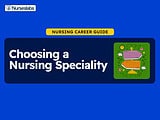
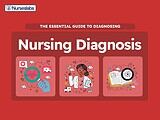
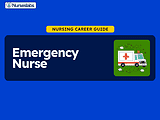
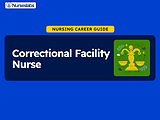
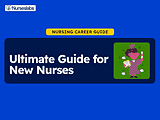
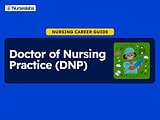




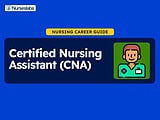

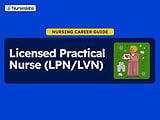

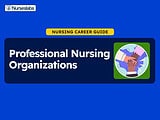
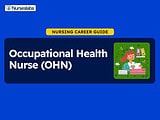



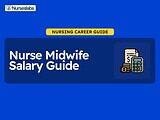
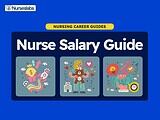

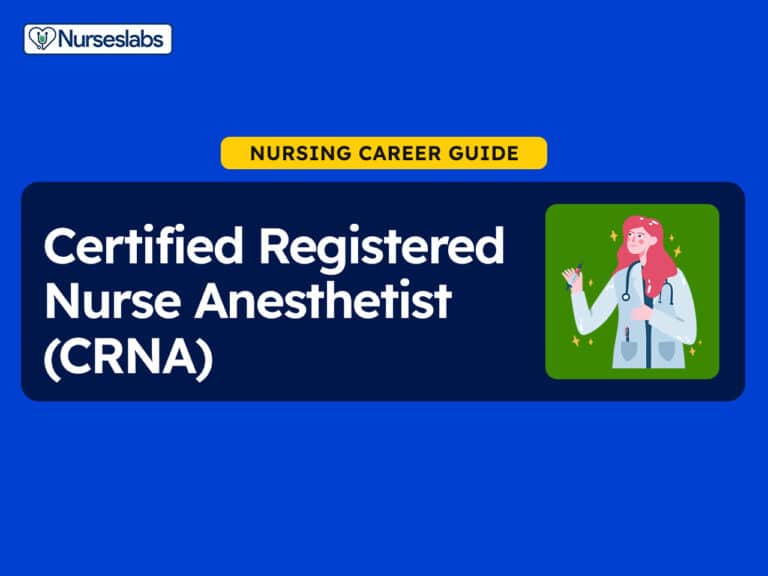

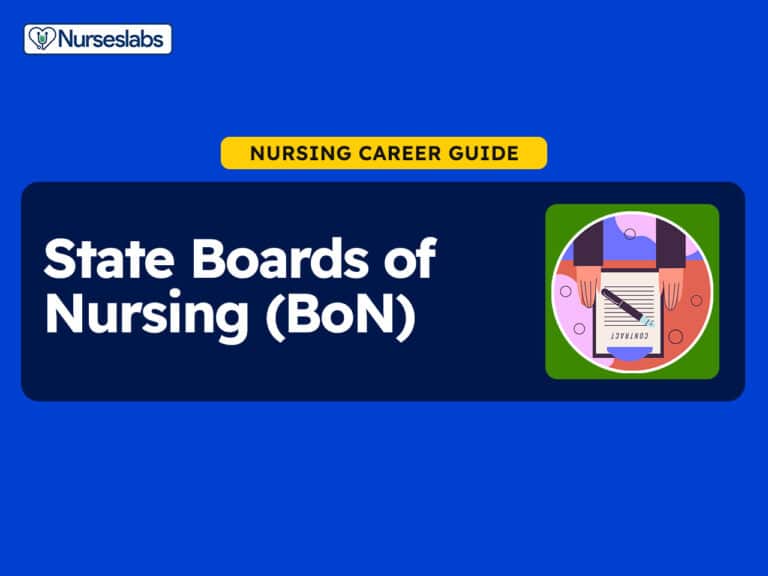



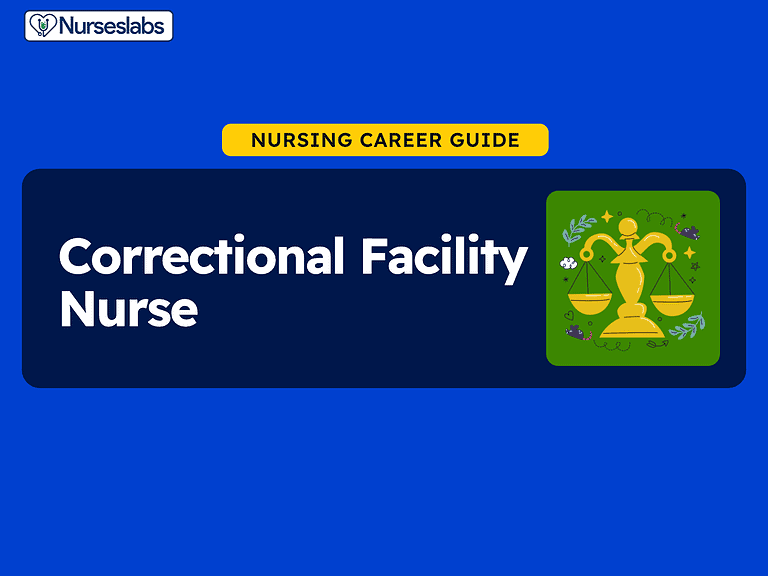
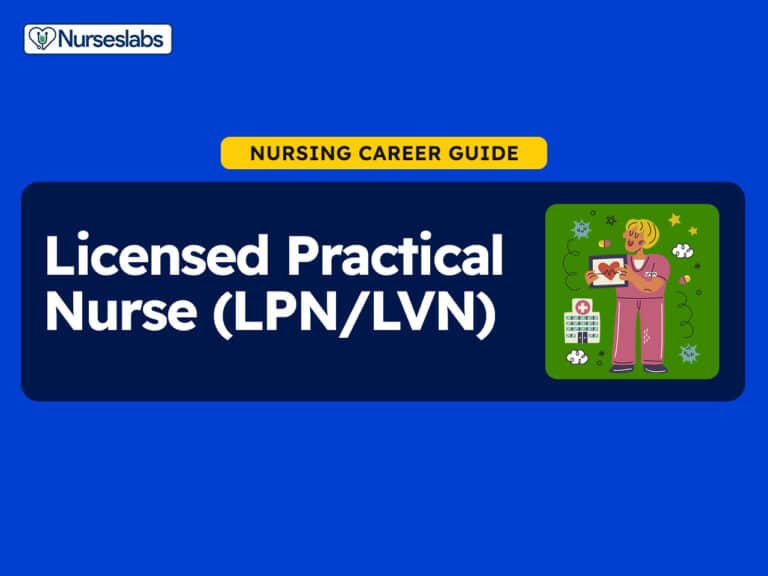
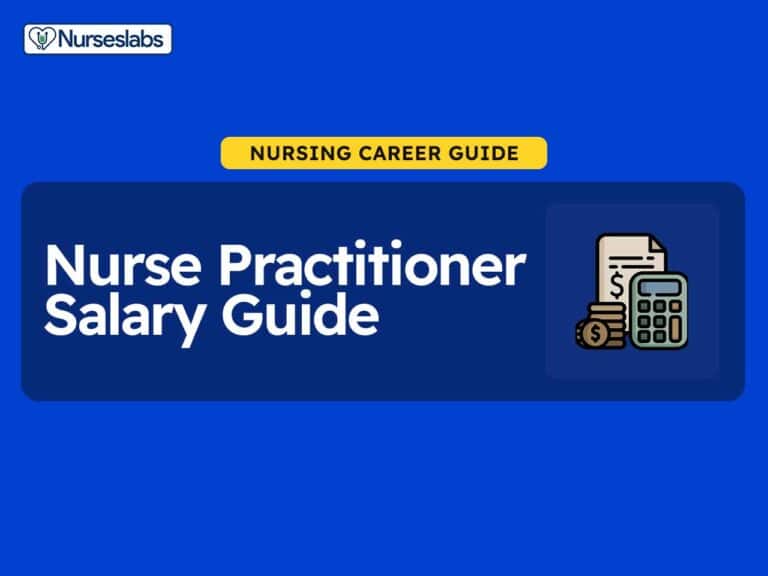
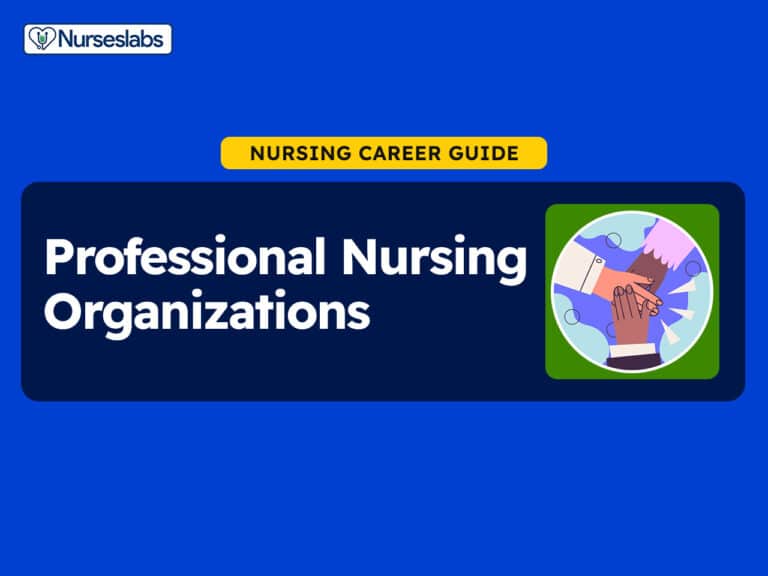
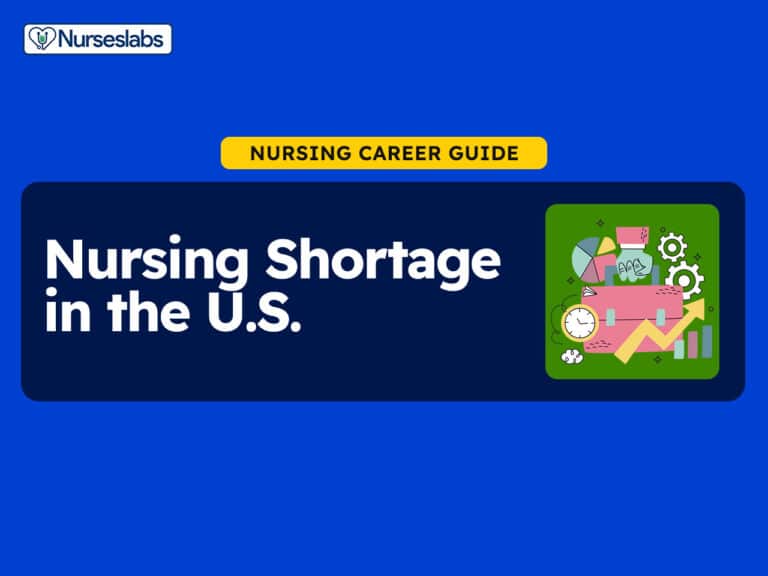
Leave a Comment